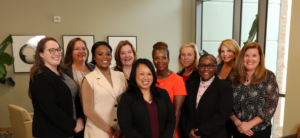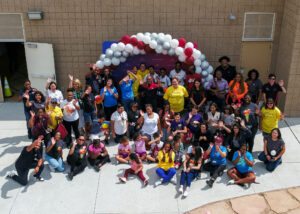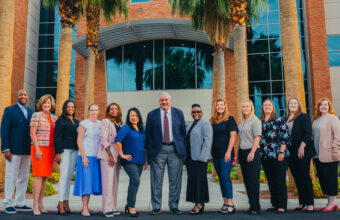Cheryl Brewster, EdD, MA
Clinical Educator Spotlight

We are excited to introduce Cheryl Brewster, EdD, MA, Senior Executive Dean for Equity, Inclusion, and Belonging at Roseman University College of Medicine.

At Roseman University College of Medicine, you are the Senior Executive Dean for Equity, Inclusion, and Belonging; at many other institutions the diversity, equity, and inclusion dean role is at a lower level on the organizational chart—How does having a position at such a high level of the organization impact the work you do?
I think positioning equity, inclusion, and belonging at the highest levels within the institution sets a tone of how the institution will be guided by leadership. I also believe it allows for true integration of equity, inclusion, and belonging efforts into all aspects of college and not in one particular area. I am working to ensure equity, inclusion, and belonging efforts are central to all our institutional effectiveness, excellence, and viability.
You have worked with organizations like Building the Next Generation of Academic Physicians (BNGAP) to increase the number of Black, Indigenous, and people of color (BIPOC) physicians, why is it important to change the demographics of medicine?
The underlying element of historical mistrust of the American healthcare system by minoritized populations is something that cannot be dismissed. If we are to address the healthcare needs of the US population and it’s changing demographics, we have to ensure that healthcare providers mirror those demographics as closely as possible. The levels of BIPOC physicians have been stagnant and have not kept pace with the demographics, thus many patients will delay or, worse, not get care due to their mistrust of the system. Data has shown that BIPOC patients feel more comfortable with concordant healthcare providers, and it can aid in alleviating some of the mistrust. BNGAP is but one part of larger solution efforts.
Your work doesn’t just concentrate on college students, why is it important to start earlier than that?

Too few students from all backgrounds truly understand the pathway to medical school. Under-represented students are at an even higher disadvantage when it comes to acquiring this information. It is important for URiM students to have access to this information early and learn to navigate their journey because oftentimes they have little access to role-models, mentorship and guidance. If students come from under-resourced school districts and rural communities, they tend to have less opportunities to learn about and explore healthcare careers in general. By starting at an earlier stage in a young person’s academic journey we open the door to for them to grow their interests and abilities.
How does your training in community-based public health impacted how you go about the work you do?
The community is everything, and community partnerships are vital particularly in systematically under-resourced communities. I want to meet people where they live and engage with them in the environment that is most comfortable for them to succeed. By creating partnerships with community members, gatekeepers, and organizations, they have a say in what programming will be successful and when and how it will be best implemented. It is an empowering feeling when you have autonomy over the direction of your future.
No person walks this journey alone, who took this journey with you? What keeps you going?
I have had various individuals along the way that have pushed, promoted, and sponsored me throughout my journey. My parents started the process of me taking my education seriously and provided different learning and exploring opportunities. My graduate school experience at a HBCU was the first time that all of my professors resembled me and that was inspiring to me and solidified that I wanted to be in academics. I was fortunate to go through graduate school at Columbia with advisors and employers who believed in me and pushed. But I have to say my biggest supporter and fan is my spouse who has been with me for most of my post-undergrad years when I was trying to figure out my path.
The thing that keeps me going is knowing that I can make a difference in the lives of young people and their journeys, and they can have successful outcomes that are meaningful to them, their families, and communities.
Preceptor: Winter 2023

Introduction
Winter 2023

Science of Learning
Human Memory III

National Trends
Assessments & Evaluations

Justice
How to Handle a Racist Patient with Residents & Fellows

Featured Resources
Overcoming Microaggressions, GME Wellness Podcast

Educator Spotlight
Cheryl Brewster, EdD, MA, Senior Executive Dean, Equity, Inclusion, & Belonging

Announcements
CME Opportunities, Public Talks, & Community Events
Join the Preceptor Mailing List
Page last reviewed: February 28, 2023